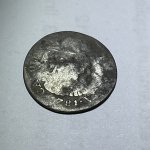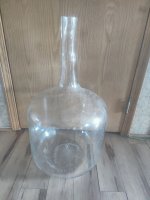darksky1x
Jr. Member
- Oct 21, 2017
- 32
- 33
- Detector(s) used
- Do not use, I specialize in e-scrap
- Primary Interest:
- Other
I named this series “Where’s The Gold”, by gold I mean “money”. Even though it’s true there is quite a bit of gold used in the construction of small electronic components, it’s also true that there are a lot of other precious and/or rare metals used in these components other than gold and many of them are almost as valuable as gold.
Capacitors are a good example of this. Not a lot of gold used for capacitors but there are many other precious metals used in their construction and that makes them a component that’s definitely worth saving and recycling. Metals like silver, tantalum, titanium, palladium, iridium and others will be found in capacitors all you need to know is which ones to look for
Because of the large variety of capacitors and materials used in their construction I am going to give you a basic run down in this article. However I have included the chapter on capacitors from my new release, "E-Scrap Parts Manual" as a .pdf attachment for your download and use. That chapter on capacitors goes into greater detail and has a wealth of information I think you will find useful including pictures.
OK, let’s get started:
**Leaded Disc Ceramic Capacitors – Silver, Titanium (very common capacitor, widely used in electronic circuit for coupling, decoupling and in filters)
**Multilayer Ceramic Capacitor (MLCC) – Palladium, Silver (very common and can be found on PCB’s everywhere)
**Aluminum Electrolytic Capacitors (Wet & Dry) – Aluminum (filtering devices in various power supplies, switching power supplies, filters in audio amplifiers, computer motherboards and PCB’s throughout the industry)
**Tantalum Electrolytic Capacitors (Wet & Dry) – Tantalum. Possibly Niobium, Iridium and Silver (mobile phones, pagers, laptop PCB’s, also in specialty industries such as space, aerospace, military, petroleum and railways, automotive, consumer electronics, medical and many other applications)
**Tantalum Foil Capacitors – Tantalum (Tantalum Foil Capacitors are generally designed for operation over the temperature range of 55C to +125C and are found in industrial and military electronics equipment)
**Silver Mica Capacitor – Silver (Coupling circuits. high-power, high-current RF broadcast transmitters, defense electronics, power conversion circuits for low-capacitance snubbed applications, cable TV amplifiers, radio/TV transmitters, high-voltage inverter circuits)
**Supercapacitors – Titanium, Iridium (solid state disk drives, mass storage backup systems,high current portable electronic devices, data loggers, medical equipment, and industrial applications such as security devices and alarm system)
Well, that’s the basic run down on capacitors. Make sure you download the attached .pdf on capacitors. which also includes pictures of all the different capacitors mentioned here and many more not mentioned. If you would like to have a copy of "E-Scrap Parts Manual" in its entirety just send me a message and I provide you with the free download link
View attachment 1.02-Capacitors-(From_E-scrap_Parts_Manual).pdf
Capacitors are a good example of this. Not a lot of gold used for capacitors but there are many other precious metals used in their construction and that makes them a component that’s definitely worth saving and recycling. Metals like silver, tantalum, titanium, palladium, iridium and others will be found in capacitors all you need to know is which ones to look for
Because of the large variety of capacitors and materials used in their construction I am going to give you a basic run down in this article. However I have included the chapter on capacitors from my new release, "E-Scrap Parts Manual" as a .pdf attachment for your download and use. That chapter on capacitors goes into greater detail and has a wealth of information I think you will find useful including pictures.
OK, let’s get started:
**Leaded Disc Ceramic Capacitors – Silver, Titanium (very common capacitor, widely used in electronic circuit for coupling, decoupling and in filters)
**Multilayer Ceramic Capacitor (MLCC) – Palladium, Silver (very common and can be found on PCB’s everywhere)
**Aluminum Electrolytic Capacitors (Wet & Dry) – Aluminum (filtering devices in various power supplies, switching power supplies, filters in audio amplifiers, computer motherboards and PCB’s throughout the industry)
**Tantalum Electrolytic Capacitors (Wet & Dry) – Tantalum. Possibly Niobium, Iridium and Silver (mobile phones, pagers, laptop PCB’s, also in specialty industries such as space, aerospace, military, petroleum and railways, automotive, consumer electronics, medical and many other applications)
**Tantalum Foil Capacitors – Tantalum (Tantalum Foil Capacitors are generally designed for operation over the temperature range of 55C to +125C and are found in industrial and military electronics equipment)
**Silver Mica Capacitor – Silver (Coupling circuits. high-power, high-current RF broadcast transmitters, defense electronics, power conversion circuits for low-capacitance snubbed applications, cable TV amplifiers, radio/TV transmitters, high-voltage inverter circuits)
**Supercapacitors – Titanium, Iridium (solid state disk drives, mass storage backup systems,high current portable electronic devices, data loggers, medical equipment, and industrial applications such as security devices and alarm system)
Well, that’s the basic run down on capacitors. Make sure you download the attached .pdf on capacitors. which also includes pictures of all the different capacitors mentioned here and many more not mentioned. If you would like to have a copy of "E-Scrap Parts Manual" in its entirety just send me a message and I provide you with the free download link
View attachment 1.02-Capacitors-(From_E-scrap_Parts_Manual).pdf
Last edited:





